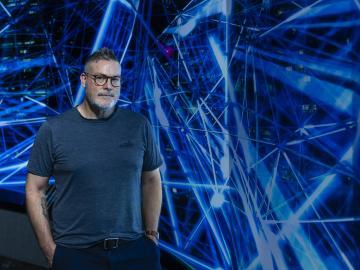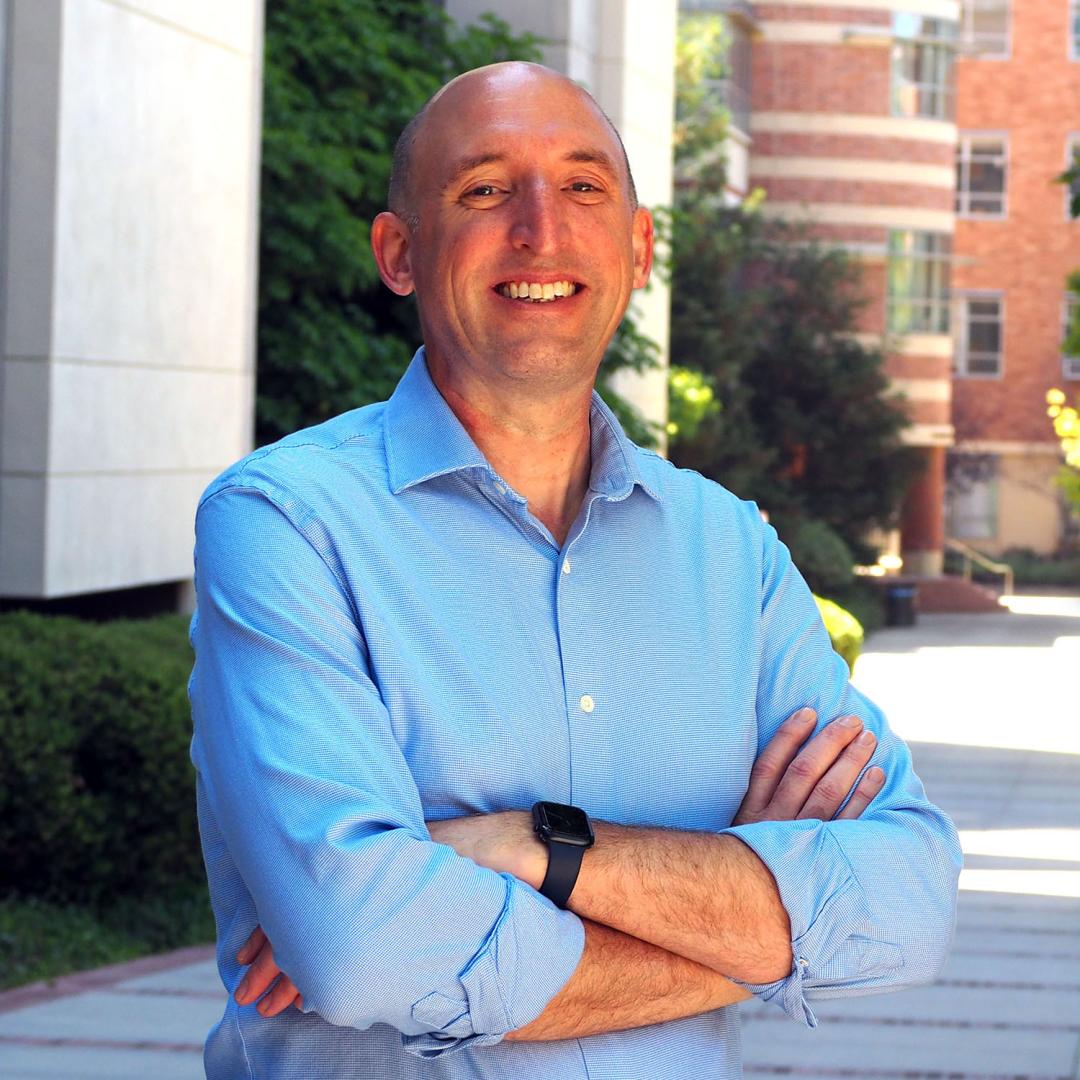
Filter News
Area of Research
- Biological Systems (1)
- Biology and Environment (44)
- Clean Energy (20)
- Computational Biology (1)
- Computer Science (2)
- Fusion and Fission (19)
- Fusion Energy (4)
- Isotopes (2)
- Materials (31)
- Materials for Computing (4)
- National Security (11)
- Neutron Science (11)
- Nuclear Science and Technology (18)
- Quantum information Science (2)
- Supercomputing (60)
News Type
News Topics
- (-) Advanced Reactors (9)
- (-) Bioenergy (52)
- (-) Composites (7)
- (-) Computer Science (88)
- (-) Frontier (25)
- (-) Mercury (7)
- (-) Nuclear Energy (60)
- (-) Physics (33)
- (-) Software (1)
- 3-D Printing/Advanced Manufacturing (43)
- Artificial Intelligence (47)
- Big Data (27)
- Biology (60)
- Biomedical (29)
- Biotechnology (12)
- Buildings (24)
- Chemical Sciences (26)
- Clean Water (15)
- Climate Change (54)
- Coronavirus (18)
- Critical Materials (3)
- Cybersecurity (14)
- Decarbonization (50)
- Education (1)
- Emergency (2)
- Energy Storage (35)
- Environment (110)
- Exascale Computing (25)
- Fossil Energy (4)
- Fusion (33)
- Grid (25)
- High-Performance Computing (44)
- Hydropower (5)
- Isotopes (28)
- ITER (2)
- Machine Learning (23)
- Materials (44)
- Materials Science (54)
- Mathematics (6)
- Microelectronics (2)
- Microscopy (23)
- Molten Salt (1)
- Nanotechnology (20)
- National Security (39)
- Net Zero (8)
- Neutron Science (50)
- Partnerships (16)
- Polymers (11)
- Quantum Computing (20)
- Quantum Science (31)
- Renewable Energy (1)
- Security (12)
- Simulation (31)
- Space Exploration (12)
- Statistics (1)
- Summit (30)
- Sustainable Energy (47)
- Transformational Challenge Reactor (3)
- Transportation (32)
Media Contacts
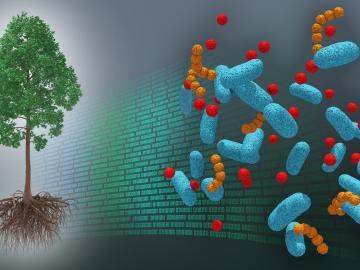
A first-ever dataset bridging molecular information about the poplar tree microbiome to ecosystem-level processes has been released by a team of DOE scientists led by ORNL. The project aims to inform research regarding how natural systems function, their vulnerability to a changing climate and ultimately how plants might be engineered for better performance as sources of bioenergy and natural carbon storage.
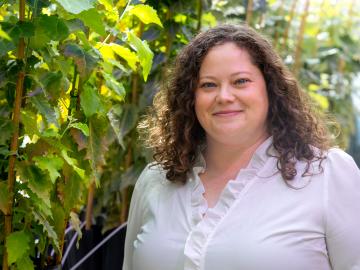
Alyssa Carrell started her science career studying the tallest inhabitants in the forest, but today is focused on some of its smallest — the microbial organisms that play an outsized role in plant health.
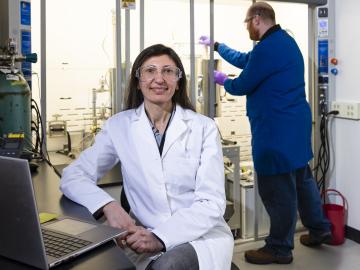
Canan Karakaya, a R&D Staff member in the Chemical Process Scale-Up group at ORNL, was inspired to become a chemical engineer after she experienced a magical transformation that turned ammonia gas into ammonium nitrate, turning a liquid into white flakes gently floating through the air.
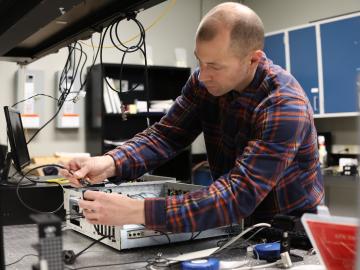
An experiment by researchers at the Department of Energy’s Oak Ridge National Laboratory demonstrated advanced quantum-based cybersecurity can be realized in a deployed fiber link.

Three staff members in ORNL’s Fusion and Fission Energy and Science Directorate have moved into newly established roles facilitating communication and program management with sponsors of the directorate’s Nuclear Energy and Fuel Cycle Division.
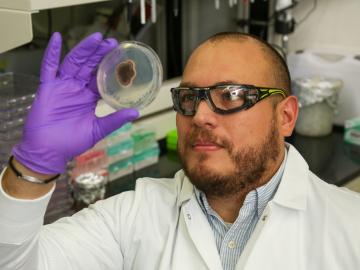
New computational framework speeds discovery of fungal metabolites, key to plant health and used in drug therapies and for other uses.

In summer 2023, ORNL's Prasanna Balaprakash was invited to speak at a roundtable discussion focused on the importance of academic artificial intelligence research and development hosted by the White House Office of Science and Technology Policy and the U.S. National Science Foundation.
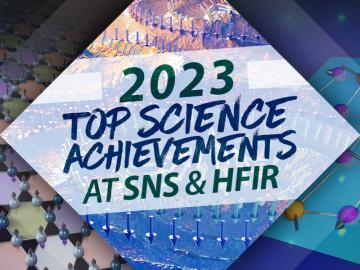
The 2023 top science achievements from HFIR and SNS feature a broad range of materials research published in high impact journals such as Nature and Advanced Materials.

The U.S. Department of Energy’s Oak Ridge Leadership Computing Facility has informed the recipients of high-performance computing time through the SummitPLUS allocation program, which extends the operation of the Summit supercomputer through October 2024.
